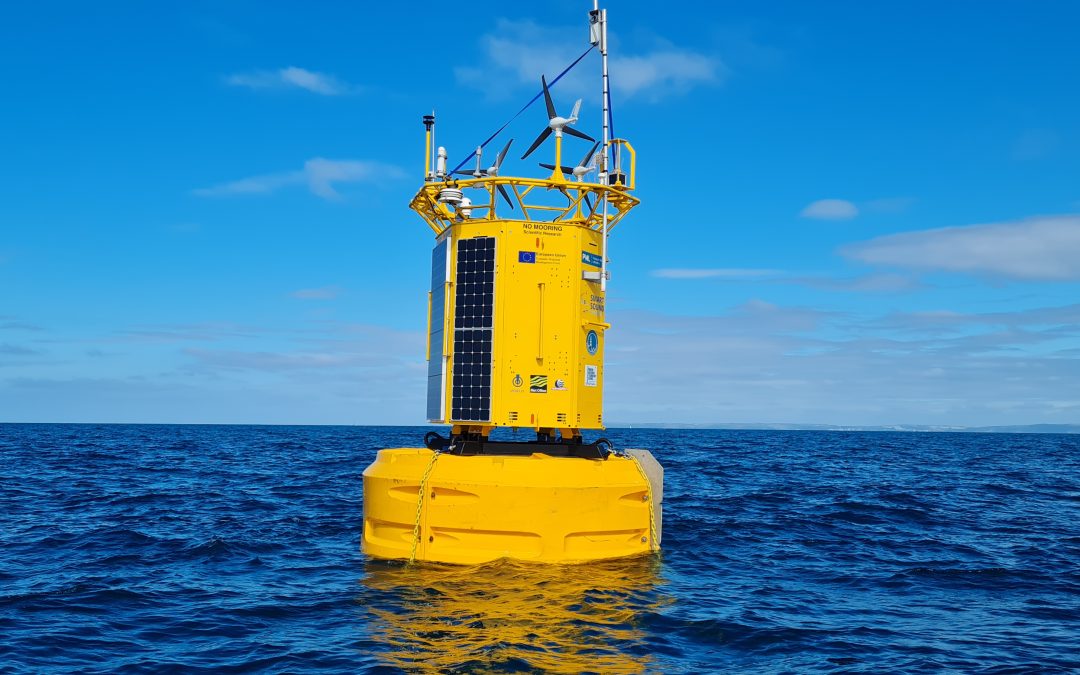Plymouth and South Devon Freeport are pleased to announce that the Maritime Regulatory Innovation Framework (MRIF) bid for ‘developing regulatory frameworks to support maritime innovation’ has been successful in securing nearly £850,000 from the Regulators’ Pioneer Fund.
The Freeport, which earlier this week was given the green light by government for its Full Business Case, is one of the first to directly work with the newly formed Freeport Regulation Engagement Network (FREN). The engagement between the Freeport and regulator enabled by the FREN, contributed towards supporting the successful bid.
Plymouth City Council, the University of Plymouth, the University of Exeter, the Maritime and Coastguard Agency and Plymouth Marine Laboratory will use the funds (£842,490) to develop a framework for testing autonomous and prototype maritime vessels for research and development (R&D) including clean propulsion methods, which will be implemented within Smart Sound Plymouth and at The Centre for Future Clean Mobility in Exeter.
This project has been made possible by a grant from the £12 million Regulators’ Pioneer Fund launched by the Department for Business, Energy and Industrial Strategy (BEIS). The fund enables UK regulators and local authorities to help create a UK regulatory environment that unleashes innovation and makes the UK the best place to start and grow a business.
Plymouth and South Devon Freeport as part of the Freeport Regulation Engagement Network (FREN) supported a pilot project which identified that innovative maritime businesses found that testing was challenging within the existing framework for their autonomous vessels and therefore were unable to provide the relevant data, required by the regulator, the Maritime and Coastguard Agency, to prove the vessels were safe. This meant that innovators felt they had to go overseas to test their products instead of in UK waters.
A number of challenges and solutions to enabling businesses, particularly SMEs, to feasibly undertake the autonomous vessel certification process by removing some financial barriers and making the whole process easier and more cost effective to apply were identified during the pilot project. The engagement and discussion of regulatory challenges and opportunities facilitated by the FREN allowed the Freeport and MCA to effectively support the development of the RPF bid alongside their partners and secure the grant.
This grant now enables the regulators, the Freeport and partners to take forward some of the solutions identified within the pilot project to make the testing of Marine Autonomous Vessels in the UK waters, by using Smart Sound Plymouth, as a testing ground, easier and more accessible. The Centre for Future Clean Mobility in the University of Exeter is also driving innovation in regulatory support towards net zero by 2050 and in clean maritime propulsion, as a partner of the wider project and will focus on regulatory approaches to clean propulsions.
Richard May, Interim CEO Plymouth and South Devon Freeport:
“We are delighted that the Plymouth and South Devon Freeport is the first to work with and initiate FREN’s support. This successful application to the Regulators’ Pioneer Fund highlights the importance of such a network to enable Freeport partners and businesses to be at the forefront of UK innovation and technological advances to develop, test, trial and apply new ideas and technologies at pace and grab market leadership without compromising safety and security. This opens up a significant international market opportunity for the Freeport.”
Rob Watson, Director Marine Business Technology Centre:
“This is a game changing announcement that will massively accelerate the development and deployment of marine autonomy and clean propulsion. It is also a huge endorsement of the cutting edge marine innovation that has developed in Plymouth and the wider South West over the past couple of decades. We will be actively supporting the core partners in this work and are excited that there are parallel international discussions already underway.”
Dr James Fishwick, Head of Smart Sound Plymouth, Plymouth Marine Laboratory:
“Plymouth has already established itself as a UK centre of excellence for marine autonomy, with the unique capabilities of Smart Sound supporting ambitions for growth in the marine technology and scientific research sectors regionally and nationally. This announcement will help further accelerate the city’s marine autonomy offering by increasing accessibility, enabling safe and sustainable innovation, research and development, and supporting the drive towards net zero.”
Innovation is at the heart of the Plymouth and South Devon Freeport reflecting the South West’s key clusters of marine and maritime businesses, agencies and organisations as reflected in the Future Autonomous at Sea Technologies (FAST) cluster and the ambitious Ocean Futures programme, which builds on existing unique assets to create a world-class centre of excellence, whilst delivering the Maritime 2050 ambition to create a cleaner, digitally enabled sector.
Image credit: Plymouth Marine Laboratory

